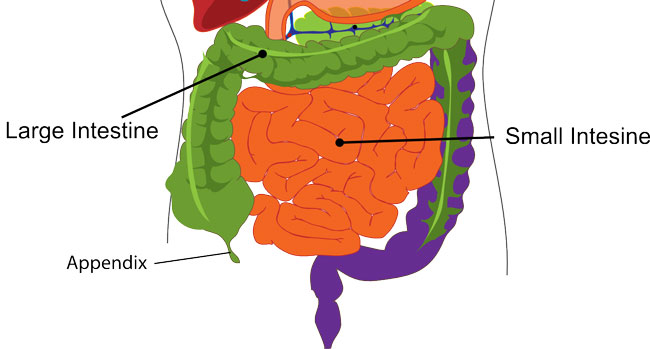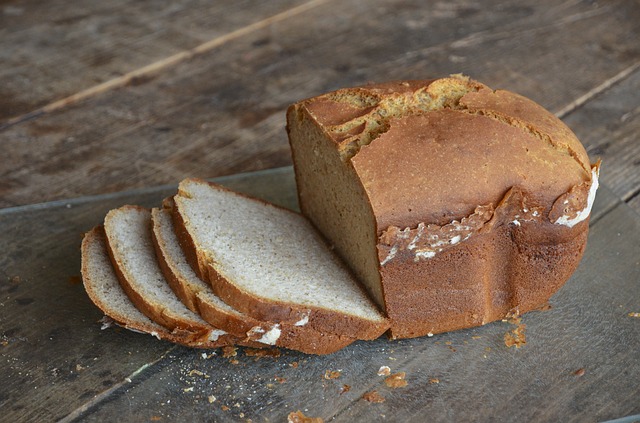IBS: What’s Really Causing Your Stomach Pain?
When you eat, most of the nutrients get digested in the small intestine with the help of peristalsis; a series of involuntary wave-like muscle contractions which move the food along the digestive track to make sure that everything is going downward. Problems with this stage of digestion, however, can create discomfort in certain people. So what’s causing these stomach aches?

The Four Elements
Irritable Bowel Syndrome (IBS) is mainly a condition of the small intestine that mostly affects young women. There are four elements of IBS or four possible causes of your stomach aches:
- Disordered peristalsis: This is kind of like a “traffic jam”; causing all the food to be backed up while trying to rush forward. The food gets blocked from going anywhere resulting in severe stomach aches.
- Excessive fluid: Normally, the small intestine absorbs any excess fluid from the food. In this case, the intestine digests the food too fast leaving too much water behind. Instead of absorbing the fluid, it goes right through you. The result of this is contractions, discomfort, and diarrhea.
- Excessive gas: Normally, by the time it reaches the small intestine, all the food should be broken down already. If it does reach the intestine undigested, it becomes food for the bacteria living there. This causes the bacteria to ferment, which leads to a lot of gas.
- Oversensitivity of the nerves: This last one is pretty simple in the way that some people just feel more intensely than others.
Handle, Manage, and Treat
Don’t worry, treating IBS is actually quite simple. It could take some medication or a change in your diet to make the pain go away.
FODMAPS
FODMAPS are specific types of carbohydrate that bacteria in the small intestine really likes. Some people have difficulty digesting foods with high FODMAPS, and therefore suffer with IBS.
Foods with high FODMAP pull in extra fluid in the intestine, which can cause diarrhea. Some examples of these are apples, apricots, broccoli, cabbage, mushrooms, wheat, pasta, cows milk, ice cream, chickpeas, and lentils.
Foods with low FODMAP absorb the fluids. Some examples of these are bananas, blueberries, carrots, celery, gluten free bread, lactose free milk, tofu, sugar, and maple syrup. Simply changing your diet and avoiding high FODMAP foods can relieve lot of the pain.
IBD and Crohn’s Disease
Before changing up your diet, you have to make sure that you actually have IBS, which is commonly confused with Inflammatory Bowel Disease (IBD) or Crohn’s Disease.
Crohn’s disease is when the body attacks its own intestine, which causes little cuts to appear alongside your intestine. While crohn’s disease is very different from IBS, they produce similar symptoms such as the body not absorbing all the liquids.
Lactose Intolerance and Celiac Disease
Have you ever had a glass of milk or a bowl of ice cream and immediately felt a bit gassy or even the need to throw up? If you have, you may be lactose intolerant.
Cow’s milk and other dairy products are common causes of stomach aches. Over time, some people lose the enzyme they need to digest lactose, and their body fights against it like it is a poison, whenever it enters the digestive system. The attempt to get the lactose out as soon as possible leaves you with the painful stomach aches and gassy feeling.

If you are lactose intolerant, dairy might be the only FODMAP you need to remove from your diet. But giving up dairy altogether can be hard, so we have products like Lactaid, lactose-free cheese, lactose-free ice cream, and even the Lactaid pill. The pill gives you the enzyme you are lacking to digest the lactose, allowing you to regularly consume dairy without the stomach pains.
Celiac disease is when the body can’t digest gluten. Unlike lactose intolerance, there is no pill to help the digestion process so celiacs have to cut gluten out of their diets. But before you throw away all your money on expensive gluten-free products, take the blood test to make sure you have celiac disease.

Medication
If you aren’t celiac or lactose intolerant, and you definitely have IBS, finding medication is probably the most helpful thing. Before choosing the medication, you need to figure out if you have IBS-C or IBS-D. IBS-C have more problems concerning peristalsis and constipation. If this is you, try Linzess which accelerates the forward movements and calms the nerves.
IBS-D is when there is too much liquid. If this applies to you, try Viberzi. This medication calms the nerves, intestines, and the cramps. It slows down the intestines and gives them longer to reabsorb the fluid.
There is also Xifaxan which is a medication designed to keep the bacteria in the intestines in check. This is helpful for both IBS-C and IBS-D. This medicine will stop the bacteria from fermenting the food, and decrease the amount of gas produced.
How can Activ Doctors help you?
Personal Health Record
Do you keep track every single diet you have tried? Have you ever forgotten trying certain medications? Activ Doctors will help you keep track of these.
If you are trying out different medications, all those records will be kept on file in one place, within easy reach. Your different diet trials will all be recorded so you will know exactly how to keep your IBS under control. It is especially helpful if you move and need find a new doctor. With Activ Doctors, you will have full access to your history with IBS.
Second Medical Opinion
You will also be able to get second opinions from specialist doctors all over the world. So many people suffer with IBS, Celiac, Lactose Intolerance, IBD, and Crohn’s disease. By getting a second medical opinion you can be sure you are diagnosed accurately. You are also able to seek advice on diet issues and other medications that might work better for you.
e-Consultation
Another feature of Activ Doctors is that you have the option to video call your doctor and talk to them from the comfort of your own home. Instead of traveling all the way to the doctor’s office with a simple question, you can simply video call, and have all your questions answered via an audio/visual web chat!